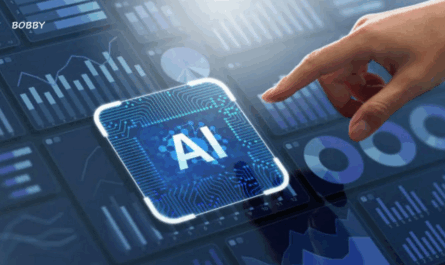Freshworks CIO Ashwin Ballal discussed the importance of empathy in the IT help desk experience, highlighting that AI can cut costs and increase efficiency, but it’s crucial to consider whether users feel more frustrated or cared for. Ballal discussed what works, where companies are going wrong, and why empathy is non-negotiable in today’s digital landscape.
Why AI Cannot Eliminate Its Mess on Its Own
Many boardrooms believe that AI tools can hide sloppy processes and disjointed data, but this hope rarely ends well. Leaders under pressure must admit that before AI can produce smart answers, they must clean up legacy data with duplicates, errors, and gaps. Many forget that algorithms only mirror what they see, and if the source is flawed, the results may mislead.
Automate the tedious and enhance the human.
The fear that AI will replace the IT profession is still prevalent, according to Ashwin Ballal, who dismisses this myth. He believes AI is more of an augmentation tool, automating repetitive tasks that most IT professionals find boring. This frees up talent for complex problem-solving, strategic initiatives, and creative thinking. At Freshworks, this is evident in daily tasks, such as password resets, where AI can help with these tasks.
The heartbeat that machines cannot replicate is empathy.
Ashwin emphasizes the importance of empathy in automation, stating that it is a daily operating principle that shapes his team’s approach and handling of daily requests. Empathy is non-negotiable, and the team must personalize every experience to deliver the kind of service they would like to receive. They back up these promises with real accountability, using their software daily, hunting for pain points, and feeding learning back into development.
Doing, not just talking, is what gives you the confidence to use AI.
Freshworks, a CIO, emphasizes the importance of using AI tools daily to overcome fear and promote staff adoption. They use Freshservice and Freshdesk, their ITSM and customer support software, extensively internally and provide candid feedback for product and engineering teams, ensuring a customer-zero approach to their products.
AI implementation in companies helps teams overcome quirks and demonstrate practical benefits. As teams take on more ownership, they focus on how to use AI for routine tasks, enabling them to tackle bigger projects. Ashwin’s previous company experienced a transformation from skeptical support teams into champions after seeing routine tickets disappear overnight.
Limitations Are Necessary for Good AI, Not Blind Faith
Ashwin Ballal emphasizes that smart AI requires discipline and targeted application to drive tangible business outcomes. Freshworks uses AI to tailor models to each industry, refine them with clean data, and monitor privacy with rigorous oversight. This restraint ensures automation helps rather than hurts. Some companies learn only after rogue bots create compliance nightmares, comparing reckless AI experiments to buying an F1 car without knowing how to shift gears.
AI as a Bridge, Not a Barrier to Collaboration
Business silos can be broken down by AI, which also eliminates the awkward tug-of-war between the business and IT departments. It can guard systems and demand rapid changes. Ballal believes AI is the biggest opportunity in the next 12 months and beyond to unify IT and business teams towards shared goals.
The Bottom Line
Large-scale empathy is a must. It serves as the binding agent that makes all of this automation feel human rather than robotic. The easiest way to put it is in Ashwin Ballal’s vision: at Freshworks, we have a straightforward vision. Teams should benefit from AI, not be overworked or replaced.
This could be the silent revolution in the use of AI. Not a machine-ruled future, but one in which people are empowered by cutting-edge technology to care more, produce more, and connect more deeply—even within the often impersonal IT hallways.




